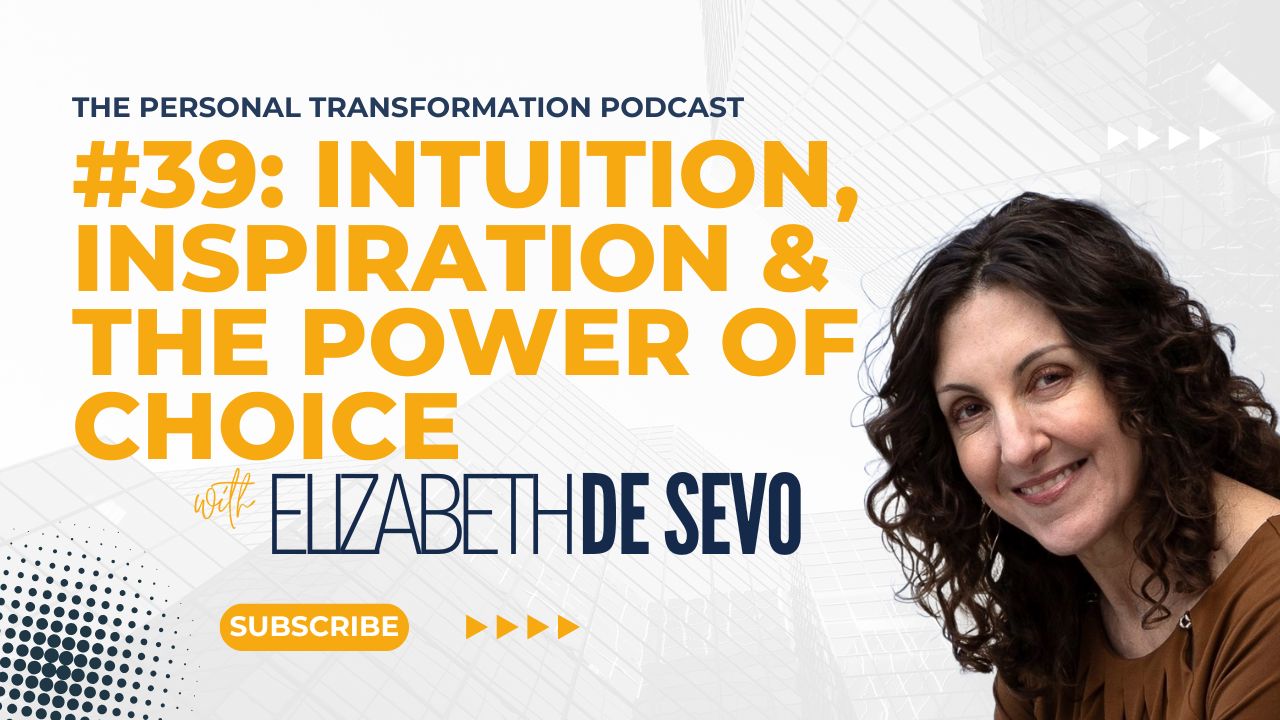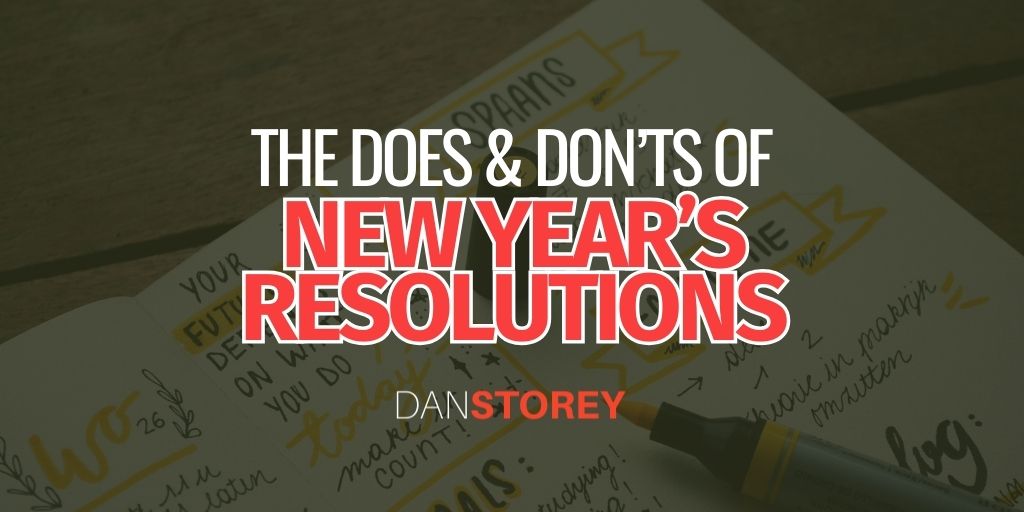Ultimate Guide To Setting & Achieving New Year’s Resolutions
Every year people set New Year’s Resolutions looking to make the upcoming year their best year yet.
Even though there is no perfect time, setting goals at the start of a new year offers some ideal perspectives that aren’t necessarily available during the other months of the year.
- You can reflect on how you performed the previous year and commit to building on that foundation.
- The holidays will likely help you feel mentally and physically recharged to start something new.
- You can draw a line under all of the challenges the previous 12 months threw at you.
- There is social momentum as others close to you also pursue new goals.
- There is a symbolic significance of leaving behind old habits and starting anew.
Around about 34% of people plan to set New Year’s Resolutions, with this number highest among 18-29 year olds where over 50% plan to start the new year with new goals. Another 13% of people are unsure of whether they will set new goals or not. Which means people are split almost 50/50 about setting goals.
If you are reading this article, chances are you are in the 50% who will be setting New Year’s Resolutions, or at least thinking about it. If you are not currently thinking about it, then hopefully this article will sell you on the benefits of setting goals at the beginning of the year. Otherwise, this article is about maximising the impact of your New Year’s Resolutions by understanding some of the science behind what makes resolutions successful.
The Best Way To Set New Year’s Resolutions
To be successful with your resolutions, you will need a combination of directional goals combined with a series of specific steps for how to get there, or what the research calls superordinate and subordinate goals.
Superordinate goals are more abstract and don’t provide specific direction. However, they give us an insight into areas of our life where we need to focus. Examples of superordinate goals could be “work on my relationship” or “focus on my career”. Even though these goals could be interpreted in many ways, for the person setting these goals, they are very compelling.
Subordinate goals are the more specific SMART goals that many goal-setting models teach. These provide specific milestones and ways of achieving your wider superordinate goals and help translate dreams into specific plans for action.
It is this combination of superordinate and subordinate goals that helps make goal setting, especially at New Year’s, more successful, especially in the long run.
So, not only do you want to identify all of the areas of your life to improve, but you should create some smaller goals that act as stepping stones for how you plan to improve your results in those areas. The combination of these two types of goals is the best way to set New Year’s Resolutions if you want to be successful with your goals.
Top 20 Ideas For New Year’s Resolutions
If you have never set resolutions before, or are looking for some inspiration on what areas of life people often look to improve after the holiday season, then these are 20 of the top areas people often choose for their New Year’s Resolutions.
| Improve fitness | Travel more |
| Improve finances | Meditate regularly |
| Improve mental health | Improve diet |
| Lose weight | Learn a new skill |
| Stop smoking | Make more time for hobbies |
| Improve work-life balance | Travel more |
| Drink less alcohol | Perform better at work |
| Eat healthier | Save more money |
| Reduce stress | Spend more time with family and friends |
| Read more | Volunteer more |
Unsurprisingly, after all the eating and drinking that occurs when families get together, health and eating-related topics are on almost everyone’s list of New Year’s goals.
However, the holidays also provide an opportunity to reflect on more meaningful topics, resulting in people often prioritising their personal growth, mental health, and longer-term ambitions such as career and family.
How To Identify Your New Year’s Resolutions
You can choose any area of your life for your goals, not just from the list above. But as we know, when we have a blank slate, it can often be difficult to pick an area to get started.
If you are struggling to think of areas to improve, use these 5 key questions to identify your New Year’s Resolutions:
- Which area of your life, if you improved it, would have the biggest impact on your whole life in general?
- Which areas have you been neglecting recently, and how has that impacted your life?
- What are you most passionate about that you haven’t invested enough energy in lately?
- Where did you experience the biggest challenges last year that you need to address?
- At the end of this next year, which change that you made would make you feel most proud?
We often set goals related to what we want others to think of us. We want to make our families happy, or have our friends respect us, or to create a more positive image in our career.
However, the secret to effective goal-setting is to pick the areas of life that are meaningful to you, and then identify some specific objectives that will help you achieve these goals.
Hopefully the questions above gave you different ways of looking at your life that helped make the areas for your goals clearer.
How To Stick To Your New Year’s Resolutions
Picking your goals is usually the easier bit. Sticking to them is where things get tougher.
According to Fortune Magazine, most people have already quit their resolutions by the second Friday in January. This day has now been nicknamed “Quitter’s Day” and just goes to show how difficult behaviour change can be.
Older research from 1988 suggested that 77% of people stick to resolutions for 1 week, 55% for one month, 40% for 6 months and only 19% for a full two years.
If most people can’t even stick to a New Year’s Resolution for two weeks, then we need to address some of the things that get in the way of us successfully setting New Year’s goals.
In fact, it is this idea that resolutions are too easy to break that contributes to the 50% of people that never set goals in the first place.
However, given the extensive research that has been done into goal setting, there are some common mistakes that people make when setting goals. Check out this list of the top 10 mistakes people when setting goals:
- Setting Unrealistic Goals: Aiming too high can lead to disappointment and demotivation.
- Not Breaking Down Goals: Large goals can seem overwhelming. Break them into smaller, actionable steps.
- Lack of Specificity: Vague goals are harder to achieve. Be specific about what you want to accomplish.
- Ignoring Obstacles: Anticipating challenges and planning for them can help you stay on track.
- Focusing Solely on the Outcome: Enjoy the journey. Celebrate small wins along the way.
- Not Tracking Progress: Monitoring your progress helps you stay motivated and adjust your approach.
- Fear of Failure: Embrace mistakes as learning opportunities. Failure is a natural part of growth.
- Lack of Accountability: Share your goals with someone who can support and encourage you.
- Not Prioritizing: Make time for your goals. Schedule them like important appointments.
- Giving Up Too Easily: Stay persistent. Challenges are temporary.
If you avoid making the mistakes above, you’ll massively increase the chance that you will stick to your resolutions and give yourself the best chance of success at successfully reaching your goals.
Additional Tips For Setting Goals & Resolutions
At the bottom of this article, you will find a New Year’s Resolution planner that you can complete to help best structure your goals and objectives for the year, as well as align your thinking behind your goals to help ensure your mindset is supporting your growth. You don’t need to use this template, but people often find it easier to have something that allows them to fill in the boxes, rather than just write their goals out.
Before we get to that worksheet, there are a few important tips you need to really improve your chances of successfully sticking to your goals and resolutions. Check out these 5 top tips for setting New Year’s Resolutions:
- Make Them Positive – research shows that approach-oriented goals are significantly more likely to result in success than avoidance-oriented goals (58.9% vs. 47.1%). Rather than saying “I don’t want to be in debt”, positively frame your goal instead, such as “I want to have enough income to be able to invest every month in XYZ opportunity”.
- Get Feedback – find something you can measure that helps you track your progress. Rather than blindly trying to pursue your goals, feedback helps you know if things are working. Jump on the scales if you are looking to lose weight. Pick a KPI if you want to grow your business. Figure out the measurement that helps you know things are progressing, and the Hawthorne Effect will take care of the rest.
- Create Short-Term Momentum – big goals can be motivating, but can quickly lead to procrastination and overwhelm. Break your goals down and create some quick wins early on and you will feel more motivated to continue. This will also increase your self-efficacy, making you believe in yourself more, which also makes you more likely to succeed.
- Find A Community – Don’t try and do this all on your own. There are likely others looking to create similar results to you. Find a group, or even just a single accountability buddy, that will help encourage you when things get tough, and can act as a sounding board when you need advice on how to move forward.
- Get A Coach – All the top performers in the world have a coach. If this goal is important to you, invest in some for of coach or mentor that can help accelerate your progress, keep you accountable, and ultimately make sure you follow through on your commitments. Click here to find out more about having me as your coach.
Do I Need To Wait Until January 1 To Set My Goals?
Setting goals at any time of the year is going to help keep your focused on your main priorities and make you more successful, so don’t feel like you need to wait until the New Year to set your resolutions.
However, given that there will be a lot of disruptions over the holiday period, perhaps you can use the days and weeks before January 1st to lay the foundations to a successful launch of your resolutions campaign.
Two of the biggest factors when it comes to being successful with your goals are readiness to change and self-efficacy (ref). Without these two in place, you will either not follow through on your plans, or you will quickly start to doubt yourself and then stop pursuing your goals altogether.
So rather than jumping into your goals early, perhaps use that time before January 1 to work on your readiness to change and self-efficacy by answering some of the questions below:
- Why is this year the best year to focus on your goals?
- How are you more likely to succeed with your goals this year than ever before?
- Who are some role-models for success I can emulate once I get started?
- How can I build a network of people that also prioritise this area of life?
- On a scale of 1-10, how excited am I by this goal? What would make it a 10 out of 10?
- Can I find a plan or blueprint that will help guide me through my resolutions journey?
By using the time before you set your resolutions to plan and prepare, you give yourself a far greater chance of success. Think about how you can build your levels of excitement, create a network of supporters around you, and start installing a positive self-belief that will give you a huge head start when the New Year finally arrives.
Supporting Resources For Your New Year’s Resolutions
Hopefully this article has helped you identify a few different ways you can set better goals and ultimately give yourself the best chance of success with your New Year’s Resolutions. If you have made it all this way through the article, you truly deserve to have this year be your best year ever.
New Year’s Resolution Planner & Worksheet
Please download this free New Year’s Resolution planner to help guide you as you write out your resolutions. Many of the topics from this article have been included, so you will see the tips and advice being put into practice as you complete the worksheet.
Top Motivational Quotes for New Year’s Resolutions
I love using motivational quotes to give me a little boost of energy and positivity as I pursue my goals, especially on those days where is feels a little more uphill (and at times it will!). Check out some of the best quotes for resolutions and goal setting here.
Personal Transformation Blueprint
My book is all about creating powerful, unprecedented and lasting change in your life. If you want a more detailed blueprint to follow then check out Personal Transformation Blueprint on Amazon.com / Amazon.co.uk / Kindle
40 Resolutions That Will Powerfully Change Your Life
If you are looking for more ideas for New Year’s Resolutions, check out this list for some inspirational ideas for New Year’s Resolutions. These goals represent some pretty significant changes, but will also make a big impact on your life when you are successful.
Please comment below with how you apply the ideas to your goal setting and New Year’s Resolution process, and I look forward to hearing how you made this upcoming year your best year ever!




[…] set New Year’s Resolutions the right way, then check out this article which outlines how to apply the science of goal setting to your New Year’s Resolutions. Otherwise, you risk joining the 77% of people that don’t even make it past Quitter’s […]
[…] Also, if you need help in figuring out how to make these resolutions more effective than your previous efforts, then check out this article on how to make more effective New Year’s Resolutions. […]